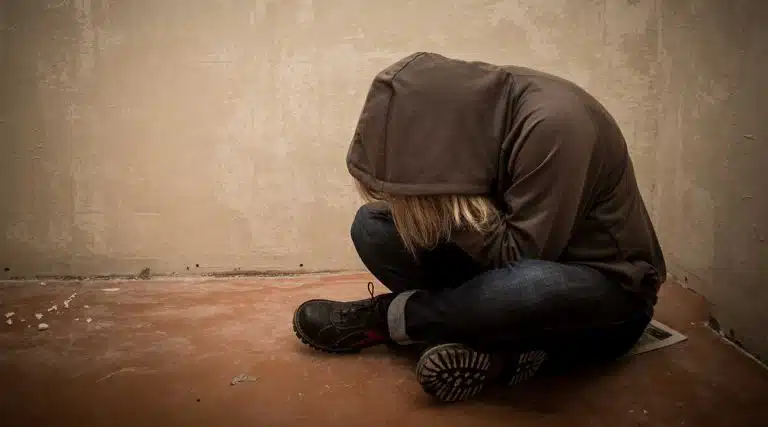Heroin Overdose | Symptoms, Statistics, & Treatment

In the United States, Heroin is classified as a Schedule I substance by the FDA. This means that the opiate drug has no medical use, is a felony to possess, and has a high potential for abuse.
Illicit heroin use remains a widespread issue in communities across the nation—as do medical emergencies and deaths due to heroin overdose.
Heroin Abuse
Heroin is incredibly addictive and each use will push you to take the drug again until you become physically dependent on it.
Whether it’s injected, sniffed, snorted, or smoked, heroin works by triggering mu-opioid receptors in the brain, causing a powerful rush of pleasure along with feelings of safety, warmth, and well-being—a heroin high.
But this high is short lived and immediately followed by a drawn out period of drowsy mental cloudiness. The drug suppresses your central nervous system, and lowers your heart rate, breathing, and brain activity.
If these physical functions are slowed down too much, it can be fatal.
Heroin Overdose Symptoms
While heroin can cause dangerous and fatal overdoses by itself, even in relatively small doses, the risk of death increases when the drug is used in combination with other central nervous system depressants.
These may include alcohol, benzodiazepines, or synthetic opioids (especially fentanyl).
Common signs and symptoms of heroin/opioid overdose include:
- blue-tinted lips and fingernails
- clammy skin
- convulsions
- nodding off
- pinpoint pupils
- skin coloration changes
- slack, limp muscles
- slow and shallow breathing / choking noises
- slow, erratic, or stopped heartbeat
- unresponsive / loss of consciousness / coma
- vomiting
Heroin Overdose Statistics
In the United States, an estimated 886,000 individuals admitted to heroin use in 2017. This figure fell by almost 9 percent in 2018, but over 800,000 Americans continued to use heroin.
Heroin use contributes to overdose deaths, as these statistics show:
- Nearly 15,000 Americans died from a drug overdose involving heroin in 2018, according to the Centers for Disease Control and Prevention (CDC). This is a rate of almost five deaths for every 100,000 individuals.
- Fortunately, this rate is also declining and fell more than 4 percent from 2017 to 2018, though seven states saw increases in overdose counts over the year.
- Nearly 1/3 of all opioid-related overdose deaths involved heroin.
Heroin Overdose Treatment
If someone around you overdoses on heroin it is critical that they receive medical care as quickly as possible, followed by treatment for drug abuse and addiction.
Immediate Treatment Steps
If you or someone you know is displaying signs of overdose, immediately call 911 and give the dispatcher all the information you can, especially:
- a physical description (size/weight/age)
- when the drugs were taken
- which drugs were taken
- what dosage
Overdoses caused by either heroin or prescription opioids can be rapidly reversed with the medication naloxone, widely available without a prescription as Narcan spray.
Naloxone is carried by first responders and acts as an opioid antagonist, blocking opioid receptors rather than stimulating them and helping victims quickly recover as their breathing and heart rate return to normal.
However, naloxone is not effective against central nervous system sedation caused by benzodiazepines or alcohol poisoning, and will not repair brain damage or other physical harm that an overdose may inflict.
If an overdose occurs, professional medical care and evaluation and care are always critical.
Heroin Addiction Treatment
Heroin is extremely addictive and breaking free can be difficult. If you are recovering from heroin overdose or at risk of overdose due to substance abuse and addiction, it’s important that you seek out help from a qualified addiction treatment center.
These treatment programs are designed to help you achieve sobriety, prevent relapse, and avoid any future overdose.
Substance use disorder treatment programs may include:
- medical detox to help you safely manage withdrawal symptoms
- medication-assisted treatment in which methadone, buprenorphine, or naltrexone can be taken under supervision to reduce drug cravings and ease long-lasting withdrawal symptoms
- behavioral therapy to help you identify triggers for drug use, improve your mental health, and change unhealthy behaviors for lasting recovery
- support groups where you can share with others going through the same process, and reconnect with supportive family members
- education and holistic programs like yoga, art therapy, and counseling
Learn more about Treatment For Heroin Addiction
To learn more about treatment options for drug overdose and addiction, please reach out to an Ark Behavioral Health specialist today.
Written by Ark Behavioral Health Editorial Team
©2024 Ark National Holdings, LLC. | All Rights Reserved.
This page does not provide medical advice.
National Institute on Drug Abuse - What effects does heroin have on the body?
Centers for Disease Control & Prevention - Heroin Overdose Data
County of Los Angeles Public Health - What is Heroin?
United States Drug Enforcement Administration (DEA) - Drug fact sheets: Heroin

Questions About Treatment?
Ark Behavioral Health offers 100% confidential substance abuse assessment and treatment placement tailored to your individual needs. Achieve long-term recovery.
100% confidential. We respect your privacy.
Prefer Texting?
Our friendly support team is here to chat 24/7. Opt out any time.







 Learn More
Learn More








